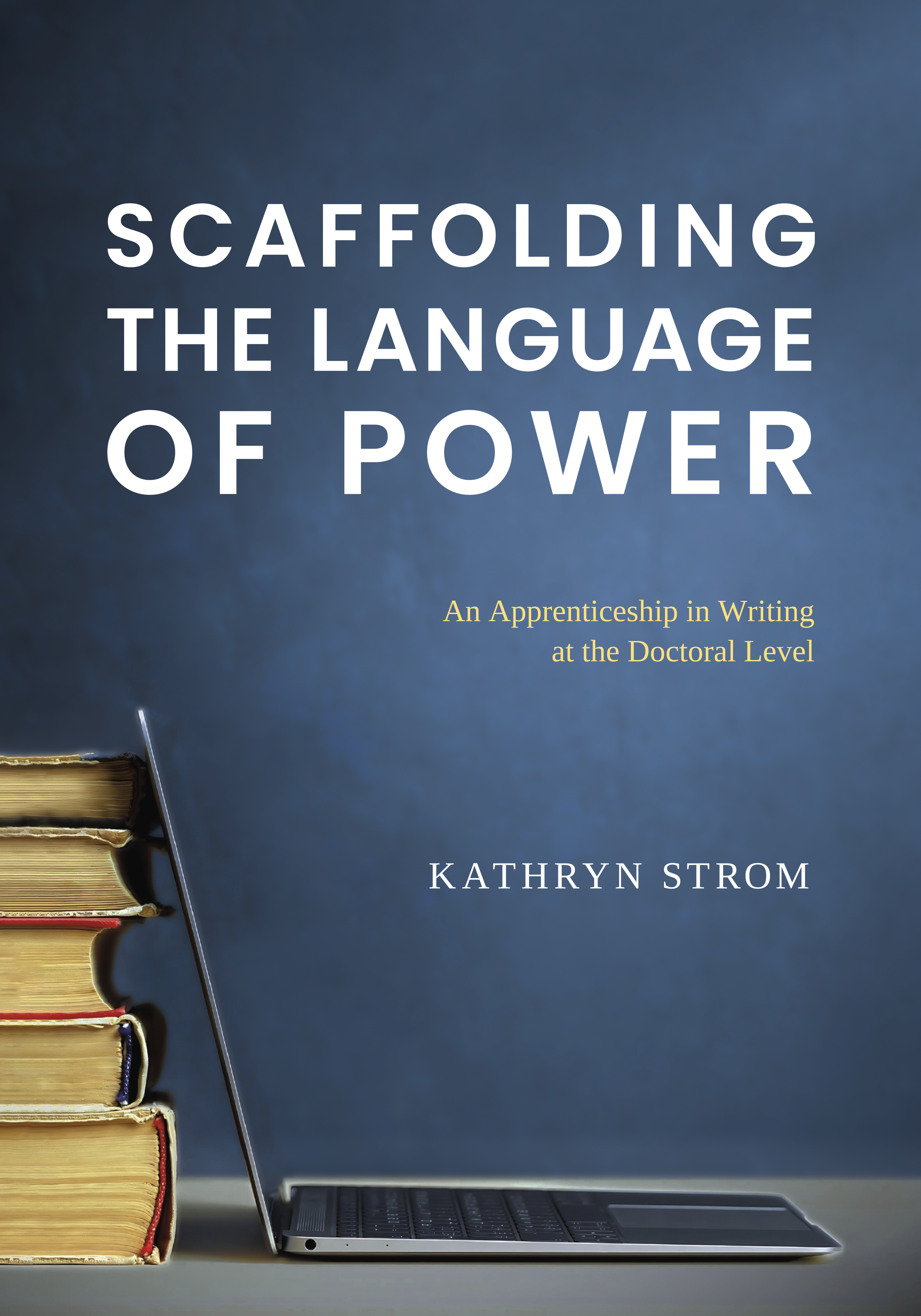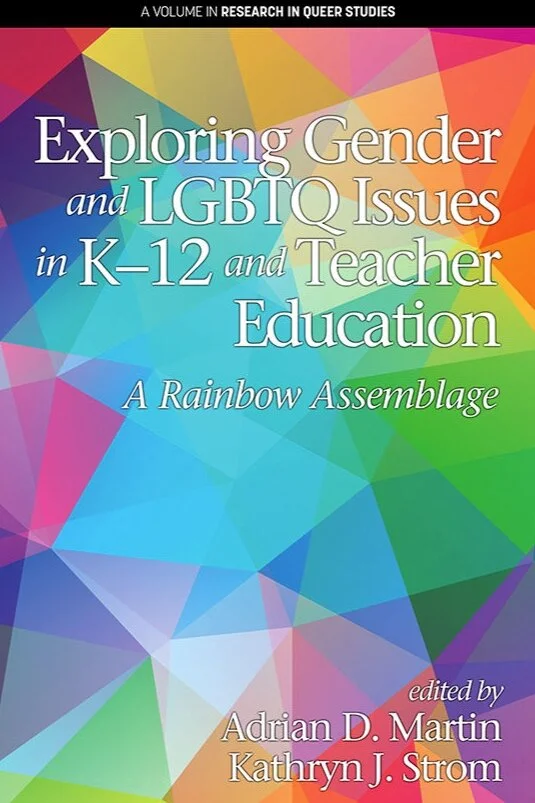BOOKS
NOW AVAILABLE!
Scaffolding the Language of Power
An Apprenticeship in Doctoral Level Writing
An accessible, practical, hands-on guide to developing the skills needed to successfully write a doctoral dissertation or thesis, this textbook-workbook hybrid can be used both as a program/course text and as a supplement for individual doctoral students in education and related social science and humanities fields. The book is built on three main ideas:
Writing as Social Justice: Writing at the doctoral level is part of the “language of power” in academia, which builds on the linguistic patterns of the dominant culture and serves as a gatekeeping mechanism.
Writing as a Genre: Doctoral level writing is also a particular way of using language, or a specific genre, with distinct rules and structures that can be taught.
Writing as Scaffolding: Approaching writing as a pedagogical act that supports readers’ understanding through purposeful scaffolding is not just a way to successfully complete a doctoral dissertation—it is a way to make academic writing more accessible in general.
With this foundation, in its first three chapters the book provides a general framework for the rules of the doctoral “language of power” along with lessons and exercises to develop organization, scaffolding, argumentation, evidence use, synthesis skills, and academic voice. The remaining six chapters address each major task of the dissertation, including the problem statement, literature review, theoretical framework, methodology, findings, and discussion. Each of these chapters explicitly teaches the purposes and elements of its specific dissertation task, guiding students through warm-ups, annotated examples with elaborated explanations of writing moves, and carefully sequenced activities. Ultimately, these pedagogical features support students to build out the pieces of their doctoral dissertations or theses, chapter by chapter.
NON-LINEAR PERSPECTIVES ON TEACHER DEVELOPMENT
Complexity in Professional Learning and Practice
Despite the multifaceted complexity of teaching, dominant perspectives conceptualize teacher development in linear, dualistic, transactional, human-centric ways. The authors in this book offer non-linear alternatives by drawing on a continuum of complex perspectives, including CHAT, complexity theory, actor network theory, indigenous studies, rhizomatics, and posthuman/neomaterialisms. The chapters included here illuminate how different ways of thinking can help us better examine how teachers learn (relationally, with human, material, and discursive elements) and offer ways to understand the entangled nature of the relationship between that learning and what emerges in classroom instructional practice. They also present situated illustrations of what those entanglements or assemblages look like in the preservice, induction, and inservice phases, from early childhood to secondary settings, and across multiple continents. Authors provide evidence that research on teacher development should focus on process as much (if not more than) product and show that complexity perspectives can support forward-thinking, assets-based pedagogies. Methodologically, the chapters encourage conceptual creativity and expansion, and support an argument for blurring theory-method and normalising methodological hybridity. Ultimately, this book provides conceptual, theoretical, and methodological tools to understand current educational conditions in late capitalism and imagine otherwise. It was originally published as a special issue of the journal Professional Development in Education.
Becoming-Teacher: A Rhizomatic Look at First-Year Teaching
In this book, Strom and Martin engage rhizomatics, a non-linear, sociomaterial theory of critical complexity, to examine three first year teachers and situated factors that affected their classroom practices. The authors argue that teaching is the jointly produced activity of a collective: each teacher is part of a temporal assemblage, including themselves, their students, their context, and assorted political, historical, and sociocultural influences, which collectively produces teaching.
Decentering the Researcher in Intimate Scholarship
In this volume, we ask what happens when the researcher in forms of intimate scholarship is decentered, or is considered as merely one part of an entangled material-discursive formation. Chapters in this volume highlight ways that researchers of teaching and teacher education can "put to work" post human, non-linear, and multiplistic theories and concepts to disrupt and decenter the "I" in intimate methodologies. Also featured in this volume are conversations with leading post human scholars, who highlight the possibilities and challenges of decentering the researcher in intimate scholarship as a practice of social justice research.
Exploring Gender and LGBTQ Issues in K-12 & Teacher Education
This volume provides examples of empirical inquiries and theorizations that explore how schools can function as more than safe academic environments for gender diverse and LGBTQ students. The contributing authors attend to classrooms and educative contexts as spaces that promote the affirmative inclusion of not only LGBTQ students, but other education stakeholders as well with the aim to dismantle homophobia, transphobia, misogyny, and other hate-based ideologies.





